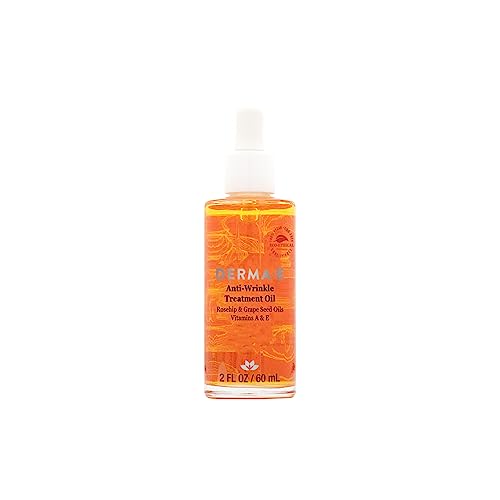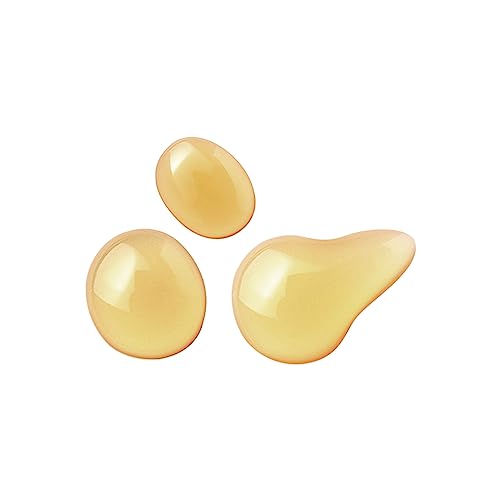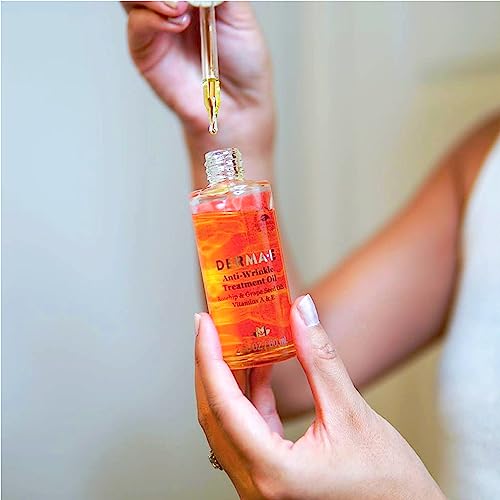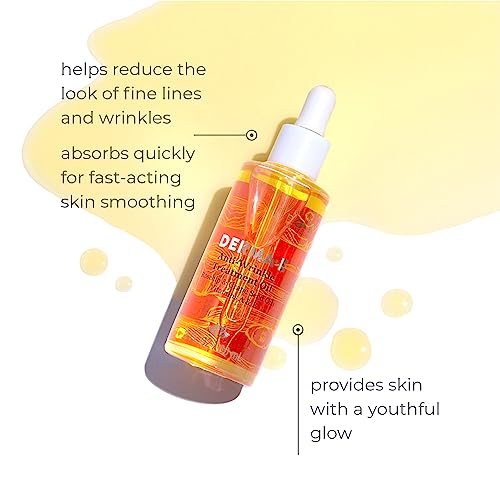







DERMA E Anti-Wrinkle Face Oil - Nourishing Vitamin A & E, Fragrance Free - 2 oz


Retinyl Palmitate (Vitamin A Palmitate)
High RiskRetinyl palmitate, also known as vitamin A palmitate, is an ester of retinol and palmitic acid. It serves primarily as a skin-conditioning agent, promoting skin health and rejuvenation through its role in cellular turnover and differentiation. This ingredient is commonly used in cosmetic formulations.
Sustai Insights
Retinyl palmitate offers functional benefits such as enhancing skin texture and providing anti-aging effects. However, it is associated with high developmental and reproductive toxicity concerns, while also posing moderate risks for carcinogenicity. Environmentally, it may contribute to pollution and bioaccumulation. Regulatory bodies have imposed use restrictions due to these health risks, leading to an overall high-risk assessment. Safe usage practices are essential, and alternatives like retinol or plant-derived vitamin A sources may be considered.
Retinol (Vitamin A)
High RiskRetinol (vitamin A) is a naturally occurring substance primarily known for its role in skin health, often included in products aimed at improving skin texture and reducing signs of aging. It functions as a potent ingredient in skincare formulations, enhancing cellular turnover and promoting collagen production.
Sustai Insights
Retinol offers functional benefits such as enhancing skin absorption and improving skin appearance through increased turnover and collagen synthesis. However, its usage is associated with high concerns regarding developmental and reproductive toxicity and potential irritation. Environmental risks include its contribution to pollution, while regulatory bodies impose strict usage restrictions. Overall, the risk level is assessed as high, necessitating careful consideration in its application and the exploration of safer alternatives.
Tocopheryl Acetate
Medium RiskTocopheryl acetate is a chemical compound that serves primarily as a form of Vitamin E. It is used in cosmetic and personal care products for its antioxidant properties and to enhance skin stability and moisture.
Sustai Insights
Tocopheryl acetate is valued for its functional benefits, including acting as an antioxidant and skin conditioning agent. It is generally considered to have low carcinogenicity and reproductive toxicity risk, although it poses a moderate concern for allergies. Environmental risks are minimal, with no significant pollutant or bioaccumulation potential noted. Regulatory bodies have not imposed significant restrictions. Safe usage practices should be followed, particularly regarding enhanced skin absorption. Alternatives like natural Vitamin E may provide similar benefits with potentially lower allergenic properties. Overall, this ingredient presents a medium risk assessment.
Tocopherol, D Alpha
Low RiskTocopherol, specifically d-alpha tocopherol, is a naturally occurring form of Vitamin E. It is commonly used in cosmetic and personal care products primarily for its antioxidant properties, helping to protect formulations from oxidation and extend shelf life.
Sustai Insights
D-alpha tocopherol provides effective antioxidant benefits, contributing to product stability. It is sustainably sourced and generally regarded as safe, with low concerns regarding carcinogenicity, allergies, and reproductive toxicity. However, there are minor concerns about endocrine disruption. Regulatory bodies have not imposed significant restrictions, indicating low overall risk. Recommended usage practices include adhering to established safe concentration thresholds. Alternatives, such as other forms of Vitamin E or plant-based antioxidants, may also be considered.
Carthamus Tinctorius (Safflower) Seed Oil
Low RiskCarthamus tinctorius (safflower) seed oil is derived from the seeds of the safflower plant. It is primarily used in cosmetic formulations for its emollient properties, helping to moisturize and soften the skin. The oil is rich in unsaturated fatty acids and is often employed in skin care products for its potential benefits to skin health.
Sustai Insights
Safflower seed oil offers functional benefits as a moisturizer and emollient, contributing to skin hydration without significant irritation. It is generally recognized as low risk concerning health impacts, with minimal concerns over carcinogenicity, allergies, and reproductive toxicity. Environmentally, it poses low risks, being non-bioaccumulative and not a significant pollutant. Regulatory bodies do not impose restrictions on its use, underscoring its safety profile. While there are no widely recognized safer alternatives, users should ensure proper application to mitigate any potential skin irritation. Overall, this ingredient is assessed as low risk.
Retinyl Palmitate (Vitamin A Palmitate)
High RiskRetinyl palmitate, also known as vitamin A palmitate, is an ester of retinol and palmitic acid. It serves primarily as a skin-conditioning agent, promoting skin health and rejuvenation through its role in cellular turnover and differentiation. This ingredient is commonly used in cosmetic formulations.
Sustai Insights
Retinyl palmitate offers functional benefits such as enhancing skin texture and providing anti-aging effects. However, it is associated with high developmental and reproductive toxicity concerns, while also posing moderate risks for carcinogenicity. Environmentally, it may contribute to pollution and bioaccumulation. Regulatory bodies have imposed use restrictions due to these health risks, leading to an overall high-risk assessment. Safe usage practices are essential, and alternatives like retinol or plant-derived vitamin A sources may be considered.
Tocopheryl Acetate
Medium RiskTocopheryl acetate is a chemical compound that serves primarily as a form of Vitamin E. It is used in cosmetic and personal care products for its antioxidant properties and to enhance skin stability and moisture.
Sustai Insights
Tocopheryl acetate is valued for its functional benefits, including acting as an antioxidant and skin conditioning agent. It is generally considered to have low carcinogenicity and reproductive toxicity risk, although it poses a moderate concern for allergies. Environmental risks are minimal, with no significant pollutant or bioaccumulation potential noted. Regulatory bodies have not imposed significant restrictions. Safe usage practices should be followed, particularly regarding enhanced skin absorption. Alternatives like natural Vitamin E may provide similar benefits with potentially lower allergenic properties. Overall, this ingredient presents a medium risk assessment.
Tocopherol, D Alpha
Low RiskTocopherol, specifically d-alpha tocopherol, is a naturally occurring form of Vitamin E. It is commonly used in cosmetic and personal care products primarily for its antioxidant properties, helping to protect formulations from oxidation and extend shelf life.
Sustai Insights
D-alpha tocopherol provides effective antioxidant benefits, contributing to product stability. It is sustainably sourced and generally regarded as safe, with low concerns regarding carcinogenicity, allergies, and reproductive toxicity. However, there are minor concerns about endocrine disruption. Regulatory bodies have not imposed significant restrictions, indicating low overall risk. Recommended usage practices include adhering to established safe concentration thresholds. Alternatives, such as other forms of Vitamin E or plant-based antioxidants, may also be considered.
Carthamus Tinctorius (Safflower) Seed Oil
Low RiskCarthamus tinctorius (safflower) seed oil is derived from the seeds of the safflower plant. It is primarily used in cosmetic formulations for its emollient properties, helping to moisturize and soften the skin. The oil is rich in unsaturated fatty acids and is often employed in skin care products for its potential benefits to skin health.
Sustai Insights
Safflower seed oil offers functional benefits as a moisturizer and emollient, contributing to skin hydration without significant irritation. It is generally recognized as low risk concerning health impacts, with minimal concerns over carcinogenicity, allergies, and reproductive toxicity. Environmentally, it poses low risks, being non-bioaccumulative and not a significant pollutant. Regulatory bodies do not impose restrictions on its use, underscoring its safety profile. While there are no widely recognized safer alternatives, users should ensure proper application to mitigate any potential skin irritation. Overall, this ingredient is assessed as low risk.
Retinol (Vitamin A)
High RiskRetinol (vitamin A) is a naturally occurring substance primarily known for its role in skin health, often included in products aimed at improving skin texture and reducing signs of aging. It functions as a potent ingredient in skincare formulations, enhancing cellular turnover and promoting collagen production.
Sustai Insights
Retinol offers functional benefits such as enhancing skin absorption and improving skin appearance through increased turnover and collagen synthesis. However, its usage is associated with high concerns regarding developmental and reproductive toxicity and potential irritation. Environmental risks include its contribution to pollution, while regulatory bodies impose strict usage restrictions. Overall, the risk level is assessed as high, necessitating careful consideration in its application and the exploration of safer alternatives.
Experience the revitalizing power of DERMA E Anti-Wrinkle Treatment Oil, a premium face oil enriched with Vitamin A and E, designed to rejuvenate aging skin. This fragrance-free moisturizer promotes a youthful glow while nourishing your complexion with an all-natural formula.
- Anti-Wrinkle Treatment: Infused with Vitamin A to visibly reduce fine lines and wrinkles, promoting youthful, vibrant skin.
- Brightens & Moisturizes: Lightweight oil absorbs quickly, enhancing surface cell renewal for a radiant, supple complexion.
- All Natural Formula: Combines Rosehip and Grape Seed Oils to deeply hydrate and condition, leaving skin soft and luminous.
- Daily Skin Care Essential: For optimal results, apply morning and night to clean skin, ensuring maximum absorption and effectiveness.
- Eco-Friendly Commitment: 100% vegan and cruelty-free, free from harmful additives, and packaged sustainably, supporting both skin health and the planet.
Subscribe & Save with Sustai
- Best Price Guarantee: Always enjoy the lowest prices on sustainable home essentials.
- No Surprises: We’ll notify you before shipping. No hidden fees, ever.
- You’re in Charge: Change, pause, or cancel your subscription anytime with ease.
- Eco-Friendly Deliveries: Our grouped shipments mean less packaging and lower emissions.
Join us on a sustainable journey. Special offers for a limited time! Prices and promotions may change.
Recommended Products
Experience the revitalizing power of DERMA E Anti-Wrinkle Treatment Oil, a premium face oil enriched with Vitamin A and E, designed to rejuvenate aging skin. This fragrance-free moisturizer promotes a youthful glow while nourishing your complexion with an all-natural formula.
- Anti-Wrinkle Treatment: Infused with Vitamin A to visibly reduce fine lines and wrinkles, promoting youthful, vibrant skin.
- Brightens & Moisturizes: Lightweight oil absorbs quickly, enhancing surface cell renewal for a radiant, supple complexion.
- All Natural Formula: Combines Rosehip and Grape Seed Oils to deeply hydrate and condition, leaving skin soft and luminous.
- Daily Skin Care Essential: For optimal results, apply morning and night to clean skin, ensuring maximum absorption and effectiveness.
- Eco-Friendly Commitment: 100% vegan and cruelty-free, free from harmful additives, and packaged sustainably, supporting both skin health and the planet.

You can have at most 2 Sustainable Steals products in your cart
Customer Reviews
Customers’ View
Customers appreciate the moisturizing effectiveness and value for money of this face oil, highlighting its ability to absorb quickly without leaving a greasy residue. Many users report that it significantly improves skin smoothness and reduces the appearance of fine lines, making it a reliable addition to their skincare routine. The oil's natural ingredients, particularly Vitamin A and E, resonate well with health-conscious consumers, as it is praised for being free from harmful additives. While some customers have mixed feelings about the scent, overall sentiments reflect satisfaction with the product's performance. Many also value its eco-friendly attributes, noting that it is vegan and cruelty-free. Overall, users find this face oil to be an effective and sustainable choice for achieving youthful skin.
AI-generated from the text of customer reviewsThis product has no reviews yet.




